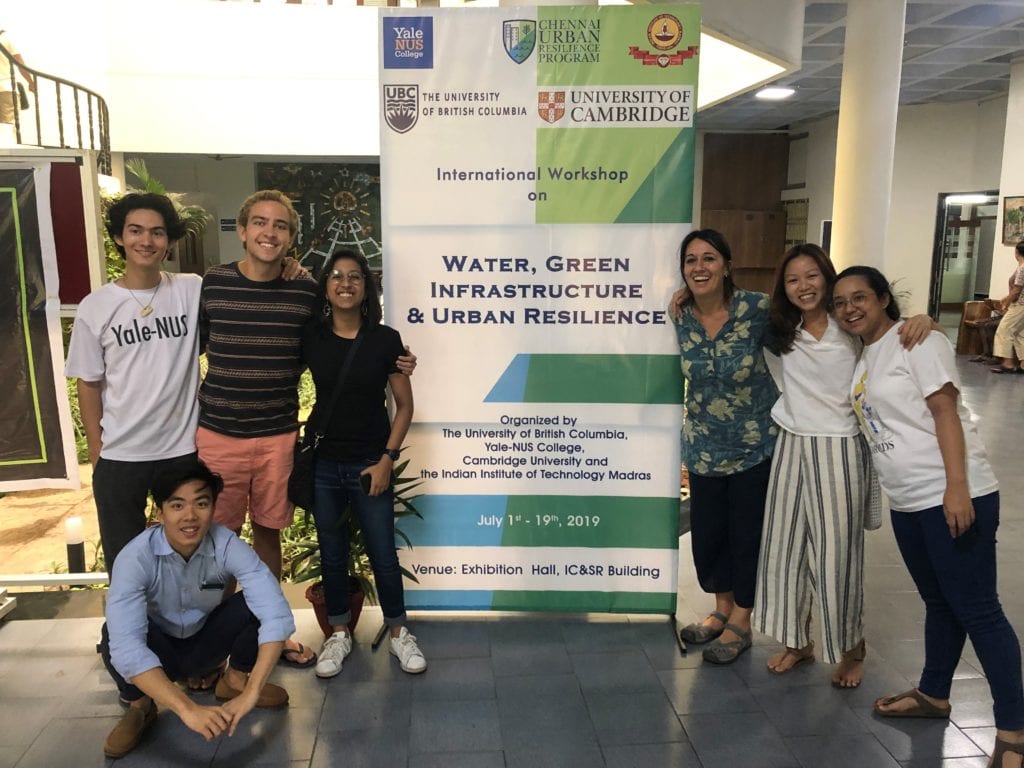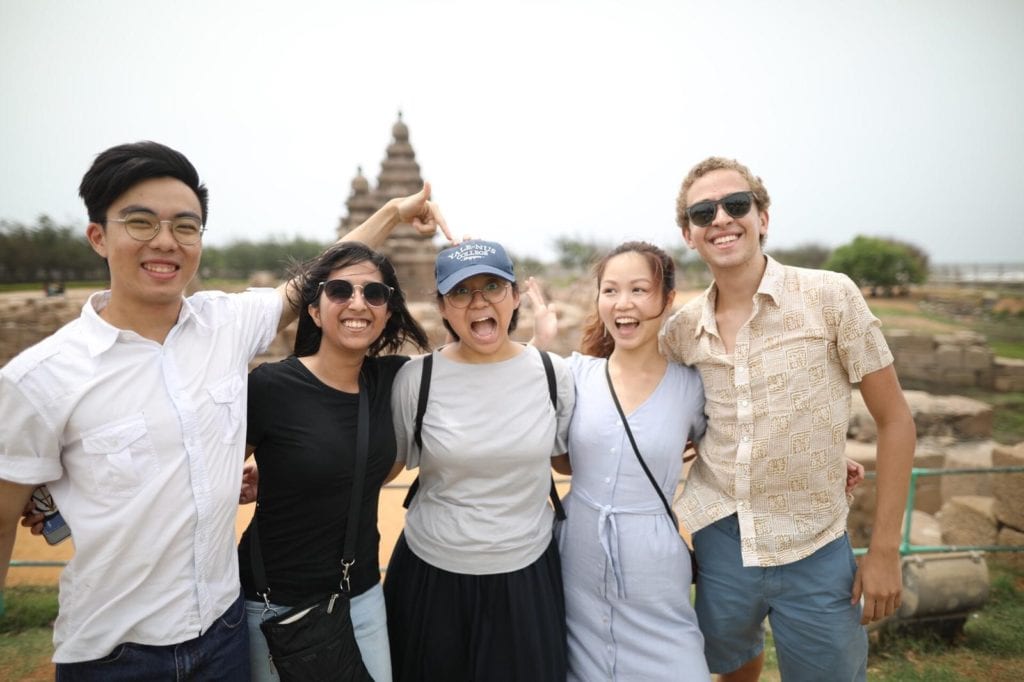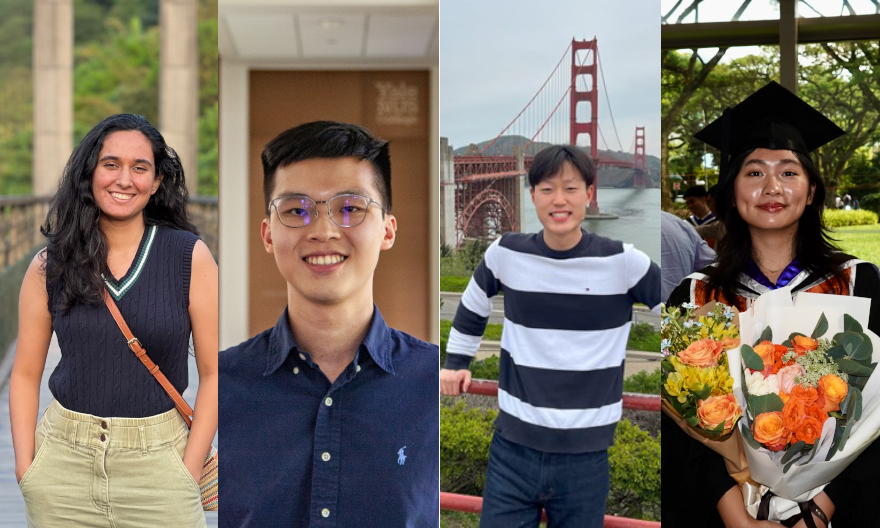Studying urban resilience in the face of complex challenges
From 14 May to 19 July 2019, a group of five Yale-NUS College students participated in a new summer programme titled Water, Green Infrastructure and Urban Resilience Summer Programme. They were led by Assistant Professor of Practice in Social Sciences (Urban Studies) Valentina Zuin and her teaching assistant Ernest Tan (Class of 2019). The programme, supported by the Dean of Faculty Office and the Centre for International & Professional Experience (CIPE), gave students the opportunity to learn about the complex challenges facing global cities, and to work with stakeholders in Chennai, India to find strategies to build resilience to these challenges.
“This pilot programme with three other institutions – University of British Columbia, IIT Chennai, and Cambridge University – was designed as a collaborative global experiential learning pathway for complex leadership contexts. We wanted to use an inter-disciplinary approach to help identify sustainable solutions to urban challenges related to water, waste management and housing in the city of Chennai,” explained Ms Nilanjana Pal, Director of CIPE.
 From left to right: Abhaya Gauchan (Class of 2021), Mr Ernest Tan, Adolfo Castro Dominguez (Class of 2020), Shanelle Samtani (Class of 2021), Asst Prof Valentina Zuin, Gladys Tan (Class of 2020), and Lee Jin Hee (Class of 2021). Image provided by Shanelle Samtani
From left to right: Abhaya Gauchan (Class of 2021), Mr Ernest Tan, Adolfo Castro Dominguez (Class of 2020), Shanelle Samtani (Class of 2021), Asst Prof Valentina Zuin, Gladys Tan (Class of 2020), and Lee Jin Hee (Class of 2021). Image provided by Shanelle Samtani
Students first participated in a six-week online course covering key concepts of urban resilience, in which they had the chance to work in teams and learn from experts in the field. At the same time, they interned with 100 Resilient Cities, an organisation sponsored by the Rockefeller Foundation with the goal of building physical, social, and economic resilience in cities around the world.
The programme culminated with the students flying to Chennai for a three-week workshop, the Chennai Urban Resilience Programme hosted by Indian Institute of Technology (IIT) Madras. During the workshop, students worked in teams on four different projects (rainwater harvesting, disaster-resilient housing, urban horticulture, and civic engagement) for the Chief Resilience Officer for Chennai.
Asst Prof Zuin explained that from the beginning, the programme was devised with an inter-disciplinary perspective in mind.
“The programme was set up to be highly inter-disciplinary, both with respect to content, during the online portion of the programme as well as on the field, and with respect to participants. Students from the four institutions (Yale-NUS, University of British Columbia, IIT Chennai, and Cambridge University) and from different disciplines participated in the programme, and faculty across four disciplines (engineering, business, land economics, and urban studies) taught it. Such inter-disciplinary focus ensured an incredible diversity of student experiences, as well as topics covered.”
For Shanelle Samtani (Class of 2021), the programme gave her the opportunity to learn from a wide variety of people, including her internship supervisors, students from other institutions, and marketing executives.
“Our supervisors at 100 Resilient Cities, being experts in specific skill sets (such as finance, marketing, communications, operations, programme management, urban planning), each set aside time throughout our internship to give us an overview of their work and what it entails. As a result, we were able to get a holistic view of how the entire company operates and how all the moving parts fit together.”
“From the different students we worked with at IIT Madras, I learned a lot about the diversity of cultures from the different parts of India that they come from, as India is truly a heterogeneous country in all aspects.”
To Jin Hee Lee (Class of 2021), her favourite part of the programme was the chance to conduct fieldwork.
“It was my first time conducting interviews on field, which made my studies feel much more tangible and relevant. In many ways, I felt highly under-qualified to be doing the work that we were assigned to do. I had to constantly remind myself that the programme’s primary objective lies in training young people like myself, so that we become better equipped for our future work. Thus, my role as a learner is to listen and observe with humility to what the local people have to say.”
 Teaching Assistant Ernest Tan and Yale-NUS students in front of the Shore Temple in Mahabalipuram, a port city near Chennai. Image provided by Shanelle Samtani
Teaching Assistant Ernest Tan and Yale-NUS students in front of the Shore Temple in Mahabalipuram, a port city near Chennai. Image provided by Shanelle Samtani
The students happened to be in Chennai during a period of extreme drought, with millions of residents going without water due to insufficient rainfall. It might be the worst drought in Chennai’s history, with city officials declaring in July that the city’s four reservoirs had gone almost completely dry.
“As my team was working on rainwater harvesting, we felt a huge amount of pressure and stress, seeing and experiencing the various effects of the drought. It was a frustrating process, trying to push for a tried-and-tested solution at a wider city-wide level but facing a lack of resources and political will. Overall, doing work on urban resilience during this drought could not have better highlighted the need for more of these kinds of efforts in wider city-level scales,” said Gladys Tan (Class of 2020).
Asst Prof Zuin shared that, despite being a specialist in water scarcity who has lived in India for two years, she had never experienced such a severe drought in a developing country. While she and the students struggled with their relative privilege as visitors to Chennai, with running water available both at their hotel and the university, the experience was an important lesson on how inequality shapes problems of urban resilience.
“This experience was an important reminder of how environmental problems – and particularly water problems – affect different citizens differently and can be at least partially mitigated by higher income households but not by poorer ones. Hopefully, we all left feeling that inequality is a major challenge that urban planners need to deal with to improve the quality of life in cities of the future,” Asst Prof Zuin said.
When asked about the future of the programme, Asst Prof Zuin said she plans to continue finding new ways to study resilience on the ground, both through her own research and through continued student engagement. The relationships she has developed with the city government and IIT faculty will allow her to start a new research project on coping strategies and resilience of households living in different types of slums in Chennai, hopefully within the coming year.
Once the results of the programme in Chennai have been fully assessed, Asst Prof Zuin also intends to replicate this programme in other cities. She hopes to find cities willing to collaborate on long-term research partnerships, along with internships and work opportunities for Yale-NUS students to gain experience working on water and resilience issues in developing countries.
“Such programmes would continue building on interdisciplinary collaboration of faculty at Yale-NUS and other institutions, as well as expand the role of Yale-NUS in solving critical problems for cities of the future.”





